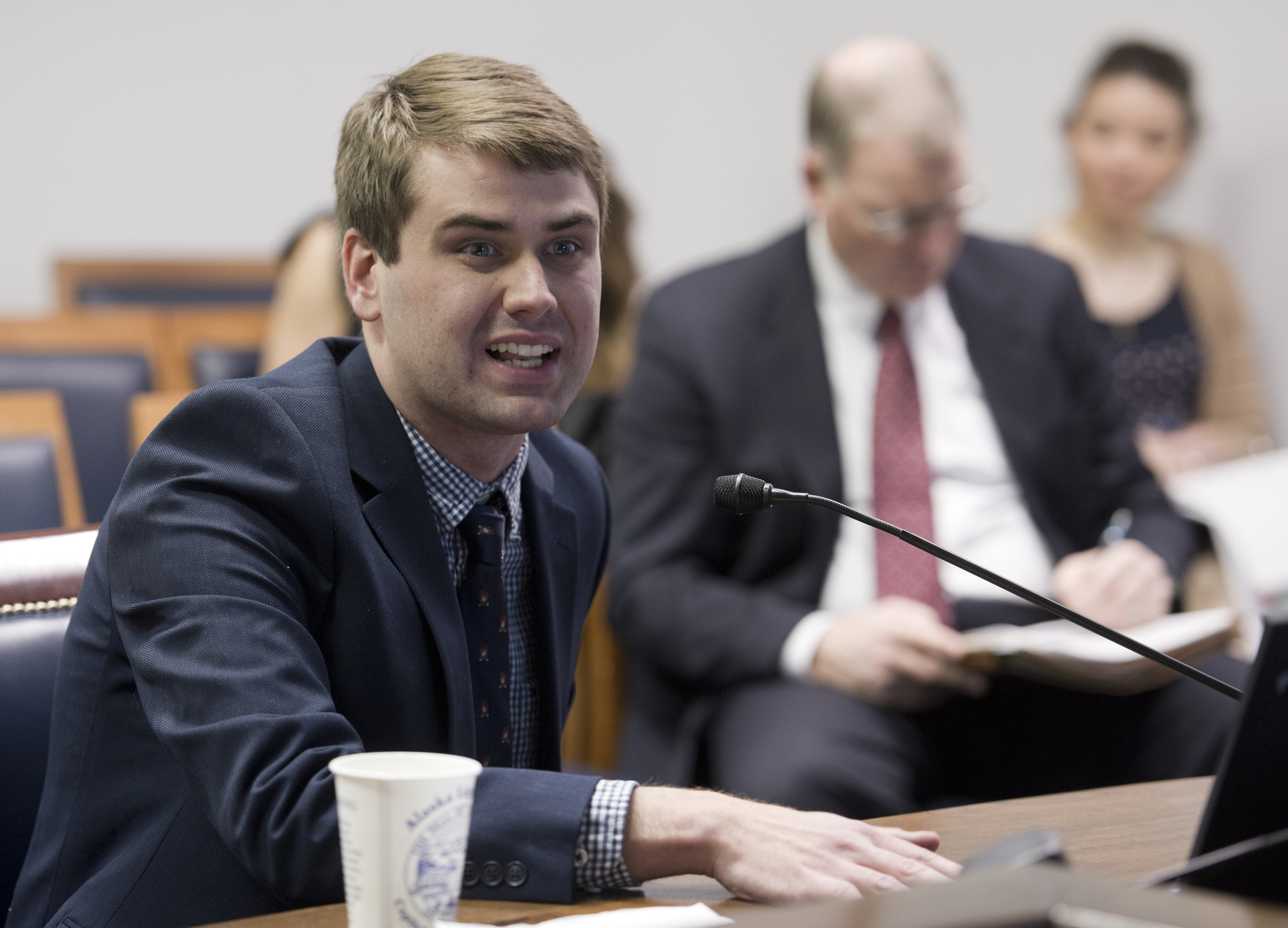Gov. Bill Walker’s proposal to triple the state’s jet fuel and aviation gasoline taxes by 2018 is causing turbulence within the state’s flying community.
If enacted by the Legislature, House Bill 60 and Senate Bill 25 would raise up to $80 million more per year to help erase a $2.7 billion state deficit by increasing state taxes on all motor fuels — gasoline and marine diesel as well as aviation fuel.
As proposed by the governor, that new money would be dedicated to the place it came from. Gasoline taxes would be reserved for road repair; aviation fuel proceeds would go to airports.
That provision has quelled most of the opposition to the first significant bump in Alaska’s fuel taxes in more than 45 years.
Even members of the tax-averse Senate Majority have begun couching the tax increase as a “user fee,” and have moved the bill to the Senate Finance Committee, the last stop before a floor vote.
The state’s aviation advisory board supports the tax hike, and so do the Alaska Air Carriers Association, Alaska Airmen Association and the Aircraft Owners and Pilots Association.
The most notable opposition to the tax hike is instead coming from some of the state’s biggest names in aviation: Alaska Airlines, Delta Airlines and UPS.
“The jet fuel tax increase … is not a user fee. In fact, it would effectively tax UPS twice,” said Nick D’Andrea, vice president of UPS public affairs, in a letter to the chairman of the House Transportation Committee.
It would be easy to call this a case of David vs. Goliath, of big companies and small pilots, but that wouldn’t be accurate, said John Binder, deputy commissioner of the Department of Transportation.
Binder, who oversees the state’s 242 airports, said it’s instead a new version of Alaska’s old conflict: urban vs. rural.
The airports at Fairbanks and Anchorage are the state’s largest by far and see most of the state’s air traffic. They’re also self-supporting, by and large, with operations paid by fees levied on the companies that use the airports.
The state still collects taxes on the fuel sold at Fairbanks and Anchorage, but those taxes don’t stay at those airports. They instead flow out to the other 240 state run airports, which mostly don’t charge landing fees.
In a joint letter, D’Andrea of UPS and Dana Debel, a managing director for Delta, said “the proposed 300 percent increase in the jet fuel tax would exacerbate the subsidization, at little benefit to the airports that are generating the revenue.”
Alaska Airlines regional vice president Marilyn Romano, in her own letter against the tax, said the company’s own calculations indicate that Alaska Airlines alone would pay 45 percent of all new taxes collected if either HB 60 or SB 25 pass the Legislature.
That’s because Ted Stevens International Airport in Anchorage, the world’s fourth-busiest cargo airport in 2015, has that lofty ranking because of international cargo flights. Under state law, fuel is not taxed if it is sold to an international flight.
The Air Carriers Association said in its letter that it supports an end to the international exemption, but Binder told lawmakers that DOT likely would not support such a move.
That’s because international air cargo is governed by economics. The 747s that land in Anchorage are capable of flying nonstop from Asia to the Lower 48, but they don’t because they can haul more cargo if they carry only enough fuel to reach Anchorage. Without the international exemption, the economics of the situation change, and the cargo flights might begin to skip Anchorage.
That would have a huge impact: Almost 13 percent of Anchorage’s jobs can be traced back to the airport, according to a 2007 study performed by the Institute for Social and Economic Research at the University of Alaska Anchorage.
Opponents of the aviation fuel tax hike might be outnumbered, but they’ve hired allies to make their voices heard.
According to documents filed with the Alaska Public Offices Commission, Alaska Airlines is spending $8,000 per month for the services of lobbyist Kim Hutchinson, who is supposed to represent the company in the Capitol on “aviation/transportation matters.”
Hutchinson has been Alaska Airlines’ lobbyist for more than 25 years, Romano said by email, and she added that the company is not spending any “incremental dollars” on lobbying about the tax increase specifically.
Delta Airlines has hired lobbyist Ray Gillespie for $50,000 per year. UPS also hired Gillespie at $50,000 per year to represent the company on “aviation, airline, taxation, budget and regulatory issues.”
SB 25 is awaiting a hearing in the Senate Finance Committee. HB 60 is scheduled to be replaced by a committee substitute next week in the House Transportation Committee, with further hearing scheduled next week.
• Contact reporter James Brooks at james.k.brooks@juneauempire.com or call 419-7732.

